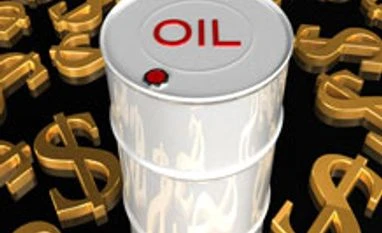Oil prices looked set to continue a multi-week decline in Asian trade today on concerns over a global oversupply of crude and mixed prospects for energy demand.
US benchmark West Texas Intermediate (WTI) for September delivery was at $44.83, down from $47.12 a week ago, and on course for its eighth consecutive week of declines.
Brent crude for September, meanwhile, was trading at $49.73 compared to $52.21 last week, and set for a sixth straight weekly fall.
A glut of crude oil supply is seen as the main driver for a sharp decline in oil prices that has seen crude fall about 50% from mid-2014 levels.
"The rebalancing of supply and demand will likely prove to be far more difficult than what was previously priced into the market," US investment bank Goldman Sachs said in a report, according to Bloomberg News.
"The risks remain substantially skewed to the downside."
The United States is producing crude at high levels and output by the Organisation of the Petroleum Exporting Countries (OPEC) continues to exceed the cartel's quota of 30 million barrels per day.
In addition, investors were looking ahead to additional supplies of oil coming into the market as part of last month's historic deal between six major powers and Iran over its nuclear programme.
In exchange for curbing its nuclear activities, Tehran will see the lifting of sanctions, which have slashed its oil exports.
US benchmark West Texas Intermediate (WTI) for September delivery was at $44.83, down from $47.12 a week ago, and on course for its eighth consecutive week of declines.
Brent crude for September, meanwhile, was trading at $49.73 compared to $52.21 last week, and set for a sixth straight weekly fall.
More From This Section
In Asian trade through the day, both contracts were up slightly, with WTI rising 17 cents from $44.66 in New York and Brent gaining 21 cents from $49.52.
A glut of crude oil supply is seen as the main driver for a sharp decline in oil prices that has seen crude fall about 50% from mid-2014 levels.
"The rebalancing of supply and demand will likely prove to be far more difficult than what was previously priced into the market," US investment bank Goldman Sachs said in a report, according to Bloomberg News.
"The risks remain substantially skewed to the downside."
The United States is producing crude at high levels and output by the Organisation of the Petroleum Exporting Countries (OPEC) continues to exceed the cartel's quota of 30 million barrels per day.
In addition, investors were looking ahead to additional supplies of oil coming into the market as part of last month's historic deal between six major powers and Iran over its nuclear programme.
In exchange for curbing its nuclear activities, Tehran will see the lifting of sanctions, which have slashed its oil exports.
)